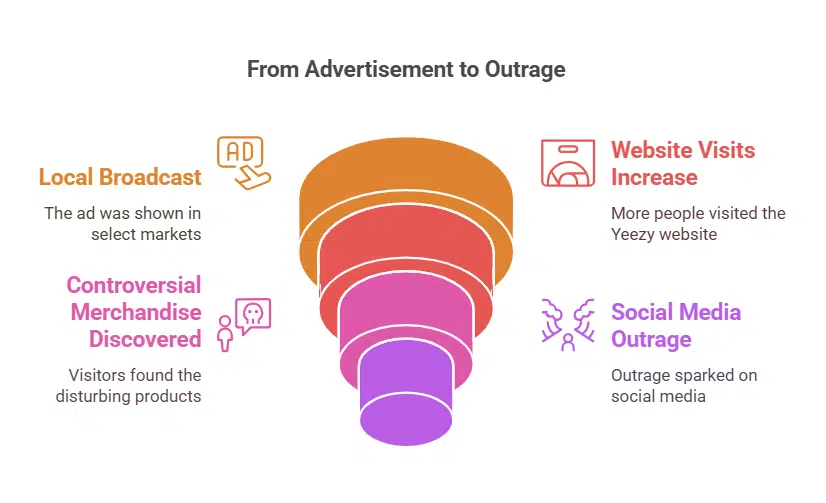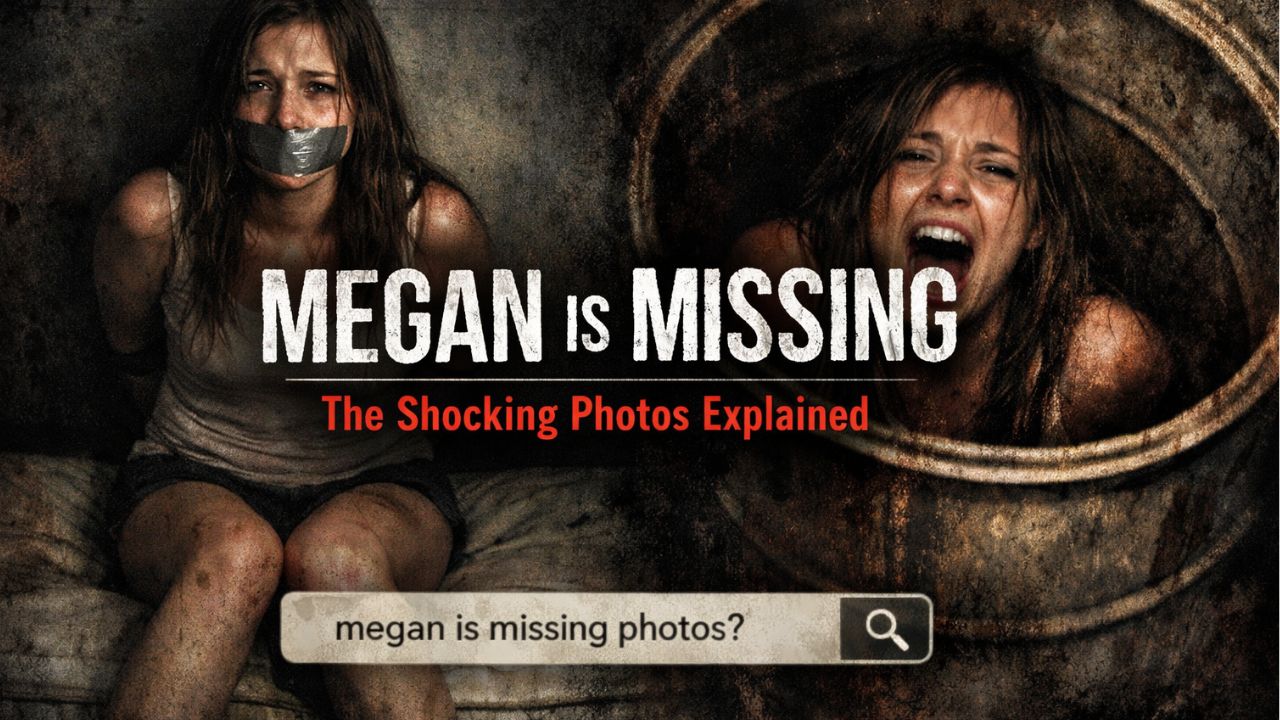In a decisive move against hate speech and extremism, Shopify has deactivated Kanye West’s Yeezy website after it was found selling T-shirts embossed with swastikas. The online store, which was powered by Shopify’s e-commerce platform, was taken down on Tuesday following intense public backlash and criticism from anti-hate organizations.
A spokesperson from Shopify confirmed the takedown, stating, “The merchant did not engage in authentic commerce practices and violated our terms, so we removed them.” The spokesperson further emphasized that all merchants using Shopify are required to adhere to the platform’s policies, which strictly prohibit the sale of hateful or discriminatory content.
As of Tuesday morning, the Yeezy website, which had been selling the controversial T-shirts, was no longer accessible.
Super Bowl Advertisement Draws Attention to the Website
The controversy surrounding West’s Yeezy store gained traction after a local TV ad promoting the website aired during the Super Bowl. The commercial, reportedly recorded on an iPhone, featured West sitting at a dentist’s office, delivering a seemingly impromptu message directing viewers to his website.
Despite being aired during one of the most-watched television events in the United States, the advertisement was not part of Fox’s national broadcast. Instead, it ran in select local markets. The Hollywood Reporter noted that Fox does not control all the ads shown by its affiliates, which means the commercial slipped through without direct approval from the network.
Although the ad itself did not showcase the controversial T-shirts, the attention it generated led more people to visit the Yeezy website, where they discovered the disturbing merchandise. This, in turn, sparked immediate outrage across social media and among advocacy groups.
Public Outrage and ADL’s Condemnation
Following the discovery of the swastika-emblazoned T-shirts, social media users and anti-hate organizations condemned West and his brand. The Anti-Defamation League (ADL) issued a strong statement against the sale of such merchandise, denouncing the use of Nazi symbols as both dangerous and offensive.
“The swastika is the symbol adopted by Hitler as the primary emblem of the Nazis. It galvanized his followers in the 20th century and continues to threaten and instill fear in those targeted by antisemitism and white supremacy,” the ADL stated in a post on X (formerly Twitter). “There’s no excuse for this kind of behavior.”
The ADL and other advocacy organizations also criticized Shopify for allowing the Yeezy website to remain active for over 24 hours after the controversial products were first spotted. Many called on Shopify and other e-commerce platforms to take stricter action against hate speech and extremist content in online retail.
Kanye West’s Controversial Online Presence
This latest incident is part of a broader pattern of behavior from Kanye West, who has been widely criticized for making antisemitic, homophobic, and misogynistic statements. Over the past few days, he has used his X account, where he has over 32 million followers, to spread hate speech, leading to calls for action from celebrities, Jewish organizations, and human rights activists.
While some of West’s posts on X were subject to visibility limitations—preventing users from replying, sharing, or liking them—his account remained active until he chose to deactivate it himself. On Sunday evening, West posted a message stating, “I’m logging out of Twitter. I appreciate Elon for allowing me to vent. It has been very cathartic to use the world as a sounding board.”
This move came after mounting pressure on Elon Musk, the owner of X, to take stronger action against West’s hate speech. Musk has faced his own share of controversies regarding his stance on free speech and moderation policies, leading to debates over how social media platforms should handle high-profile figures spreading extremist rhetoric.
Fallout from the Incident
The backlash against Kanye West has not been limited to social media. The incident has had significant repercussions for his business and professional relationships. In addition to the Shopify takedown, West has faced consequences in the entertainment industry.
33 & West, the talent agency that had been representing West, officially dropped him following his antisemitic rants and the promotion of Nazi-related imagery. The agency’s decision was publicly announced by talent agent Daniel McCartney, who posted on Instagram that they could no longer support someone spreading such harmful messages.
Additionally, several major brands that had previously collaborated with West have reaffirmed their distance from him. Companies like Adidas and Balenciaga had already severed ties with him in the past over similar controversies, but this latest scandal further cements his isolation from mainstream business and fashion circles.
Industry and Public Reactions
Industry experts have noted that this incident marks another turning point in West’s career, as he faces increasing alienation due to his repeated controversial statements. While West has a loyal fan base, many former supporters have expressed disappointment and anger over his actions.
Experts in e-commerce and digital policy have also weighed in, stating that Shopify’s swift action sets an important precedent for other online platforms. As hate speech continues to proliferate in digital spaces, companies face growing pressure to take immediate and decisive action against violators.
“Online platforms have a responsibility to ensure that their services are not used to promote hate and extremism,” said a digital rights advocate in an interview with CNN. “Shopify’s response was appropriate, but the fact that the site remained up for over a day shows that more proactive monitoring is needed.”
The Bigger Picture
The removal of the Yeezy website is just one piece of a larger conversation about accountability for public figures and the role of online platforms in moderating content. As the debate over free speech versus hate speech continues, companies like Shopify, X, and others are under pressure to refine their policies and enforcement mechanisms.
For Kanye West, this latest controversy adds to an already tarnished reputation, raising questions about whether he can recover from the fallout. With former business partners distancing themselves and growing public outrage, the impact of his actions is likely to be long-lasting.
In the meantime, advocacy groups continue to push for stricter measures to prevent the spread of hate speech online, calling on digital platforms and corporate entities to act swiftly against those who use their services to spread harmful rhetoric.
Kanye West’s attempt to sell swastika-emblazoned T-shirts on his Yeezy website has sparked widespread outrage and led to serious professional consequences. Shopify’s takedown of the website highlights the growing demand for accountability in online commerce, while West’s inflammatory remarks continue to draw condemnation from various sectors. As digital platforms face increasing scrutiny over their role in moderating extremist content, this incident serves as yet another example of the urgent need for proactive enforcement of ethical business practices and social responsibility.



































